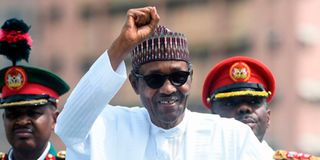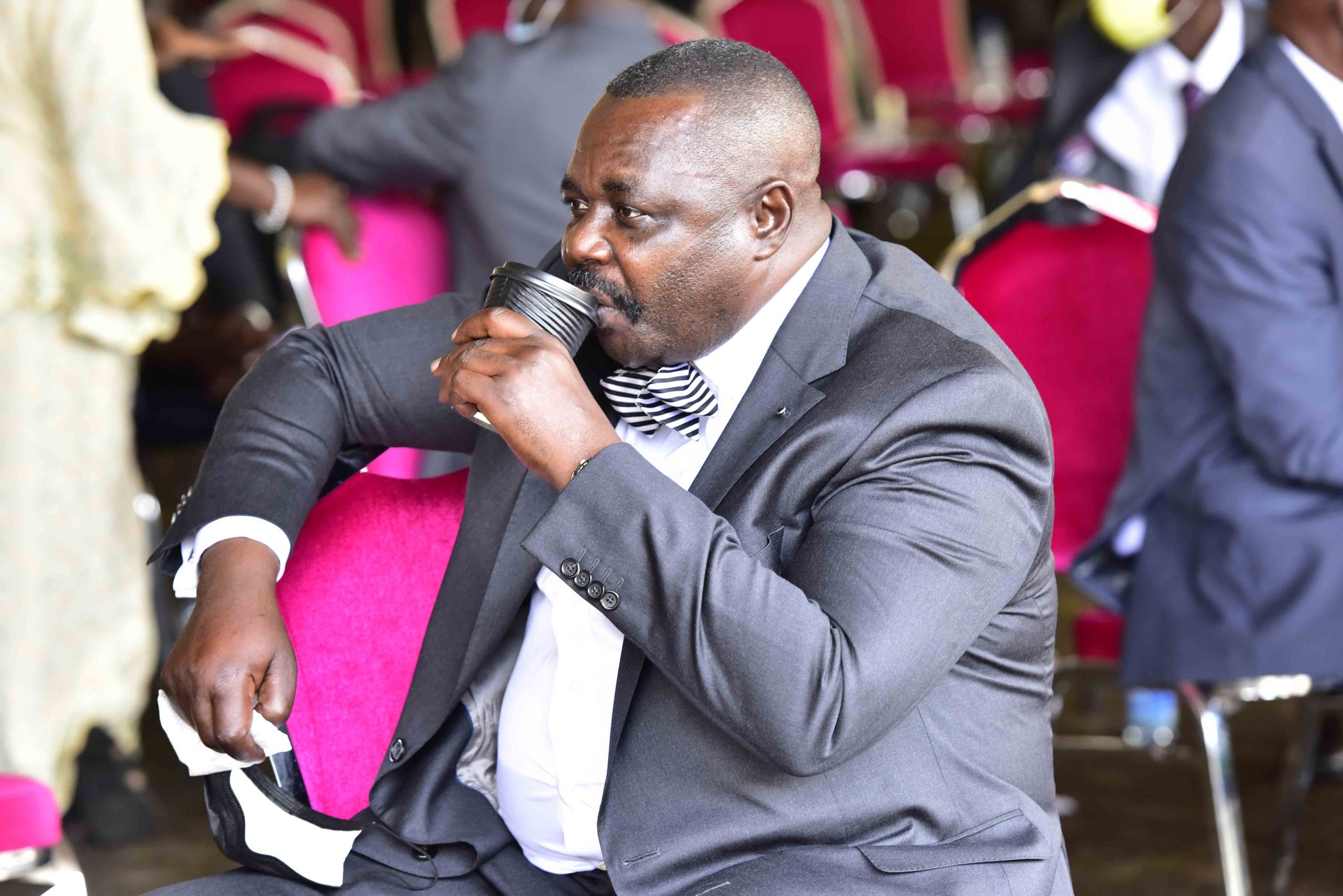Covid-19 could give birth to new African nations. Watch this space

In this file photo taken on June 12, 2019 Nigerian President Muhammadu Buhari raises his fist during an inspection of honour guards on parade to mark Democracy Day in Abuja.
What you need to know:
- Secession is in the air in Africa, although in recent years the big headlines has been mostly a few.
- It turns out there are active separatist movements in 25 — nearly half — of the 55 African Union member states.
A group of northern Nigerian leaders calling themselves the Northern Elders Forum (NEF) have just made one of the most surprising and novel arguments for secession.
The Igbo people, in the country’s southeast, they said, should be allowed to secede because it was not worth the country going to another war in order to save it.
Between July 1967 and January 1970, Nigeria was roiled by the Biafra War between the central government and the Biafra secessionist movement, representing the Igbo. In addition to about 100,000 military casualties, a staggering 500,000 to two million Biafran civilians died of starvation.
After the war, the Republic of Biafra was rejigged into the five states of Ebonyi, Enugu, Anambra, Imo and Abia. In the past 15 years, there has been a resurgence of Igbo separatist nationalism; there is a slow-motion civil war under way with regular sabotage and attacks on state installation.
Strikingly, in the context of Africa’s “tribal” politics, NEF are President Muhammadu Buhari’s people, from the north.
After a NEF meeting on Monday, spokesman Hakeem Baba-Ahmed said: “This nation has had to fight a terrible war to preserve the country. The north had paid its dues in that war.... Under our current circumstances, no Nigerian should welcome another war to keep the country together.”
Separatist movements
“The forum has arrived at the difficult conclusion that if support for secession among the Igbo is as widespread as it is being made to look, and Igbo leadership appears to be in support of it, then the country should be advised not to stand in its way.
“It will not be the best choice for the Igbo or Nigerians to leave a country we have all toiled to build and a country we all have the responsibility to fix, but it will not help a country already burdened with failures on its knees to fight another war to keep the Igbo in Nigeria.”
It was the Nigerian political version of the famous quote: “If you love something, let it go. If it comes back to you, it’s yours forever. If it doesn’t, then it was never meant to be.”
Secession is in the air in Africa, although in recent years the big headlines has been mostly a few — like the Anglophone separatists in Cameroon’s northwest region fighting to create a state they call Ambazonia; the various rumblings in Ethiopia; the chaps in Senegal’s Casamance region; the militants in DR Congo’s Kivu region; the Bakongo in Angola’s Cabinda region; the Tuareg in Mali seeking an Azawad republic; and the Lozi in Namibia’s Caprivi Strip.
The shock came from a search of the active separatist movements in Africa. Separatism, as one listing defines it, includes autonomism and secessionism with members seeking greater autonomy or self-determination for a geographic region.
It turns out there are active separatist movements in 25 — nearly half — of the 55 African Union member states! Nigeria isn’t the secessionist capital either; that honour goes to Ethiopia, which has five fairly active ones: In the Afar, Oromia, Tigray and Ogaden Somali regions and the Sidama Zone. The DRC has three: In Bas-Congo, Katanga and Kivu. On average, most countries have two.
Covid-19 lockdowns
These are too many. The dam will have to burst, and at least three of them could end up in independent nations in the next five to 10 years. When that happens, we will find that Covid-19 had some part to do with it.
Last year, when the world was swept by the Black Lives Matter anti-racist protests following the horrific execution by police knee of the African-American man George Floyd in the US, many wise heads battled with the question of why the protests had been so widespread in America and gone global at that point and not earlier.
Among others, they reasoned that with the Covid-19 lockdowns, with work and public places closed and people sitting at home all day looking at their screens, more of them had time to pay attention to the US police’s racist violence against people of colour. And because they didn’t have to go to work or to the movies, travel or watch big sports, they channelled the energy into protest.
There could be some grains of truth to it. In Nigeria and Ethiopia, the restrictions necessary to contain the spread of the coronavirus, seem like they have given separatists and nationalists a lot of time to stew on their grievances.
However, the same restrictions also mean that the state has been more visibly absent with no government offices open, reduced police and army patrolling and no president’s motorcade running up and down.
In most of Africa, the pandemic has left most states and their politicians exposed as naked chiefs as they fail to offer anything beyond beating curfew breakers in the face of the biggest crisis of our times. As a result, more people aren’t afraid of them and want out.
Mr Onyango-Obbo is a journalist, writer and curator of the Wall of Great Africans. @cobbo3





